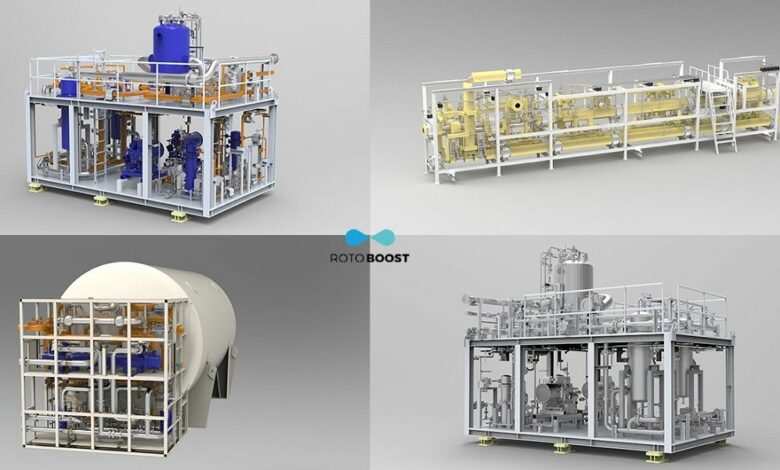Onboard pre-combustion carbon capture system gets stamp of approval

Nordic hydrogen production company Rotoboost has been granted approval in principle by leading classification society Lloyd’s Register (LR) for its pre-combustion carbon capture system which converts natural gas onboard ships into hydrogen and solid carbon prior to combustion.
The innovative system called Rotobox uses thermocatalytic decomposition process (TCD), where part of the natural gas fuel supply is converted into hydrogen and graphite with a liquid catalyst.
The TCD process is said to significantly reduce CO2 emissions, particulate matter and methane slip, with the capacity to reduce overall carbon emissions by up to 100%, depending on the heating method used. Converted hydrogen from the CCS can be used for fuel cells or as blend-in fuel for combustion engines or gas-fired boilers.
According to LR, the system, which marks a further milestone in the development of carbon capture, fits well with LNG carriers and other LNG-fuelled vessels, offering lower electrical power requirements compared to conventional units and less storage space needed for solid carbon.
LNG shipping players, including Greece’s GasLog, have been exploring optimal systems for onboard carbon capture on their ships. In 2022, GasLog teamed up with South Korea’s Daewoo Shipbuilding and Marine Engineering (DSME) and American class society ABS to have the system installed on LNG newbuilds scheduled to be delivered sequentially from the first half of 2024. The same year, ABS awarded Rotoboost a statement of maturity (AiP) for their technology.
Kaisa Nikulainen, Rotoboost’s chief executive, explained: “Our technology introduces a new perspective on fossil fuels, demonstrating how they can be equally green when used innovatively. In addition to hydrogen as a green blend-in fuel, our byproduct, pyrolytic graphite, is also an excellent battery-grade anode material for electric cars and green steel production. This circular economy creates a powerful tool to combat global warming and climate change on both land and sea. Our technology also demonstrates great potential in cost-effective production of green methanol and ammonia in land-based facilities, which further provides the shipping industry with other affordable alternative fuel options.”
